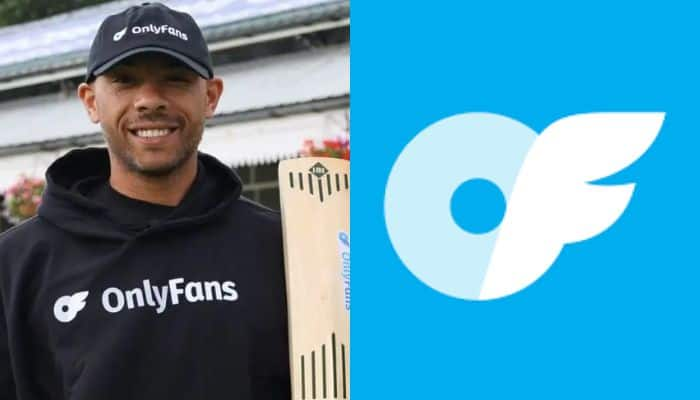Why The ECB Blocked Tymal Mills From Promoting OnlyFans In Cricket’s Family-Friendly League
England fast bowler Tymal Mills, the all-time leading men’s wicket-taker in The Hundred, has been denied permission to display the OnlyFans logo on his cricket bat during the 2025 edition of the tournament. The England and Wales Cricket Board (ECB) ruled that the platform’s branding does not align with the league’s family-friendly image, igniting a wider conversation about personal branding in professional sports.
ECB Says No to OnlyFans Branding
Mills, 33, who represents Southern Brave in The Hundred, signed with OnlyFans last week, becoming the first professional cricketer to join the subscription-based platform. The left-arm quick intended to use his bat as a promotional space for his new venture, but the ECB stepped in, citing the competition’s commitment to attracting families and young fans.
A spokesperson confirmed that the decision was based on safeguarding the tournament’s image. OnlyFans, while home to creators from diverse fields including music, fitness, and sport, is globally recognised for its adult content associations—a reputation the ECB is keen to keep at arm’s length.
Mills’ Response: “Completely Safe Content”
Far from retreating, Mills has defended his move, stressing that his OnlyFans page will focus solely on cricket-related and lifestyle content. “It’s all about sharing my passion in a new way,” he said. “Subscribers will get a closer, more personal look into life as a professional cricketer—training insights, match prep, and behind-the-scenes moments.”
The pacer, who has represented England, Royal Challengers Bangalore, and Mumbai Indians, explained that the partnership had been in the works for over a year. “I did my research, had conversations, and understood how big the company has become. They’re trying to branch into football, surfing, skateboarding—and now cricket.”
Standout Performance in The Hundred 2025
Despite the off-field controversy, Mills remains a crucial figure for Southern Brave. In their opening match, he took 3-22 and chipped in with a valuable six runs in a tense one-wicket victory over Manchester Originals. His form reinforces why he’s regarded as one of the competition’s most reliable match-winners.
Athletes, Sponsorships, and the OnlyFans Question
Mills is not the first athlete to clash with governing bodies over OnlyFans ties. In May 2025, British canoeist Kurts Adams Rozentals was suspended by Paddle UK over alleged posts on the platform, forcing him to choose between his Olympic ambitions and his content creator role.
Meanwhile, some sports have embraced the association. Australian boxers Ebanie Bridges and Cherneka Johnson, along with motorsport racer Renee Gracie, have worn OnlyFans sponsorships during competition. This contrast underscores the broader debate: should sports leagues allow athletes to promote personal brands tied to platforms with mixed public perceptions?
The Hundred’s Branding Balancing Act
The ECB’s decision reflects the delicate balance between athlete autonomy and league identity. The Hundred is still a relatively new tournament, launched to modernise cricket and attract non-traditional audiences. Marketing itself as an accessible, family-oriented product, the competition is careful to control its image—especially at a time when sports and social media branding are increasingly intertwined.
By blocking the OnlyFans logo, the ECB sends a clear message: personal sponsorships must fit the league’s overarching ethos. Yet, the move also raises questions about freedom of expression for players and the evolving ways they monetise their careers.
What’s Next for Mills and The Hundred?
While Mills accepts the decision, the partnership is far from over. He will continue posting on OnlyFans, offering cricket fans exclusive access to his journey, albeit without in-game promotion. His on-field performances will likely keep him in the spotlight, regardless of the branding dispute.
For The Hundred, the incident highlights a growing challenge—navigating the collision of digital-era personal branding with traditional sporting values. As more athletes explore alternative revenue streams, governing bodies may face increasing pressure to reconsider the boundaries between image protection and player independence.





